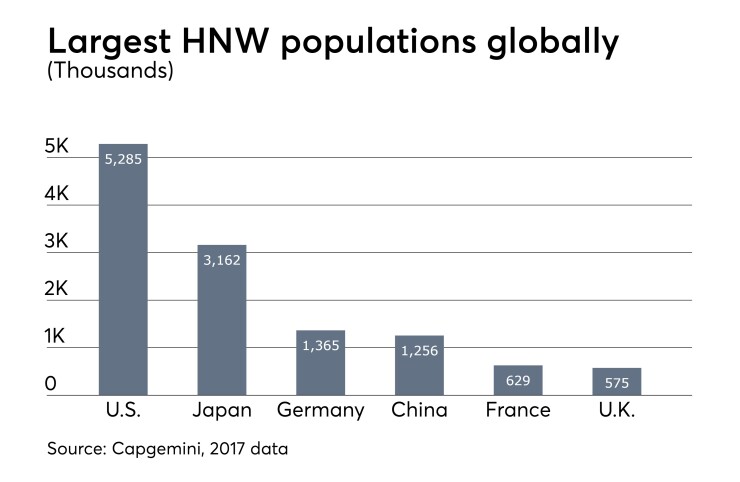An old saying suggests that the first generation makes the money, the second generation spends it and the third generation loses it.
Advisors may wish this weren’t the case, hoping their advice is taken to heart and shared among generations, but there is more than a kernel of truth in it, according to market observers.
This creates a common dilemma: How should high-net-worth parents educate their kids about their wealth and how to handle it responsibly? And what age is best to start his conversation?
There were 5.3 million high-net-worth individuals in the U.S. in 2017, according to the World Wealth Report from consulting firm Capgemini. And children growing up in one of these high-net-worth household probably know they are well off, despite parents not having any formal conversation about the family wealth.
“Younger children are pretty perceptive and pretty smart and there’s going to come a time where they’ll start to figure it out on their own,” says Scott Pedvis, a Wells Fargo advisor who works with HNW families and has more than a decade in the industry. “They’ll Google their parents or their grandparents, they’ll see that they live in a particular kind of house or dress a certain way.”

But as for more detailed education on the family fortune, opinions vary. Some advisors advocate for speaking to the kids early and often, while others suggest waiting.
For his part, Pedvis doesn’t believe in keeping information from children. He says it is more about how, rather than when, clients discuss the topic with their kids. Getting parents to show their children that growing up wealthy is a privilege that comes with a lot of responsibility is key in his advisement approach for this client.
“Privilege is more than having nice things and going on nice vacations,” he adds. “[Clients] start to get their kids involved at a younger age in understanding what wealth is and teaching them that wealth also means giving back.”
Instilling that sense of responsibility can make or break a child’s approach to that wealth in the future.
That said, other advisors feel that parents risk giving children too much information about the family wealth when those kids are immature and unaware of the responsibilities that go along with it.
“I think most of us agree that telling someone they are financially secure may at first blush seem like a kind thing, but likely is an enabler to bad habits,” says advisor and estate planning attorney Leon LaBrecque of LJPR Financial Advisors. “So I tend to suggest that clients keep their finances to themselves.”
Determining when a child should be looped in on the family finances is a psychological question, not a monetary one, LaBrecque says. He believes letting a child know at a young age can make them entitled and diminish their work ethic. Although he says an exception to his own rule is dependent on the client’s charitable nature and whether or not the parents instill that into the child.
-
Advisors want to help clients discover their "sleep well at night factor" when it comes to cash reserves, one planner says.
July 5 -
Experts point out that the two generations have more similarities than some advisors may think — and both present major potential growth opportunities.
July 11 -
"We're not being judged on what other banks are doing. We're being compared to Amazon and Google," says Kraleigh Woodford, managing director at UBS WM USA.
July 11 -
Liz Miller, president of Summit Place Financial Advisors, takes on a common mistake made by wealthy relatives, the new Trump tax law and why one-on-one meetings still beat robo advice.
March 12
“I think sometimes you enable children by giving them too much information and you take away their impetus and their drive to perform and do things,” he says. “My experience after years of watching this is a lot of times, more often than not, a kid that knows they’re financially independent and wealthy [kids] will tend to work less than ones who feel they have more self-reliance.”
At a certain point in life people reach a level where they have made and learned from their mistakes, says LeBrecque, and it’s at this point that he says is the optimum time for the younger generation to learn of their incoming wealth.
From an estate planning perspective, LaBrecque takes a sprinkle approach. When drafting a trust, he says he tends to distribute those assets in three segments.
“Here we’re going to give the kids a third of the assets up front, we’re going to give them half of what’s left after five or 10 years and the we’ll give them the rest after 10 more years,” he explains.
Usually what he sees is the kids blow through that first chunk, realize what they’ve done and then become more responsible when the next two waves hit.
For his clients, LeBrecque recommends telling kids about their eventual fortune after they finish college.
“There’s a period when the child, after they graduate from college, starts to get more mature and in my ad-hoc experience that tends to be around 30, you can start talking to them about more rational things.”





